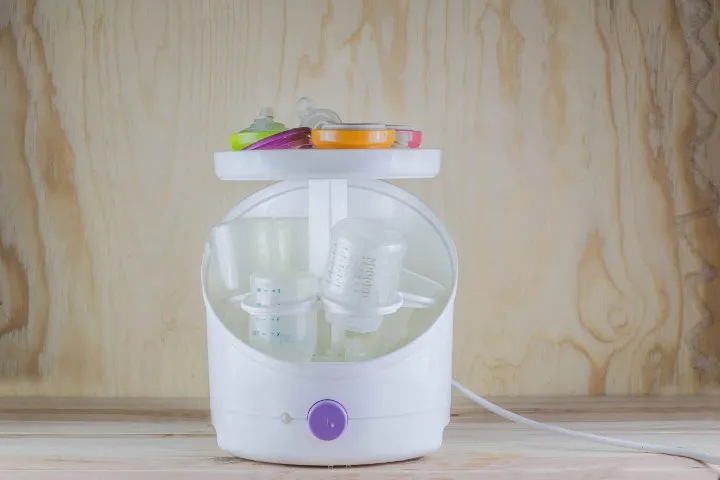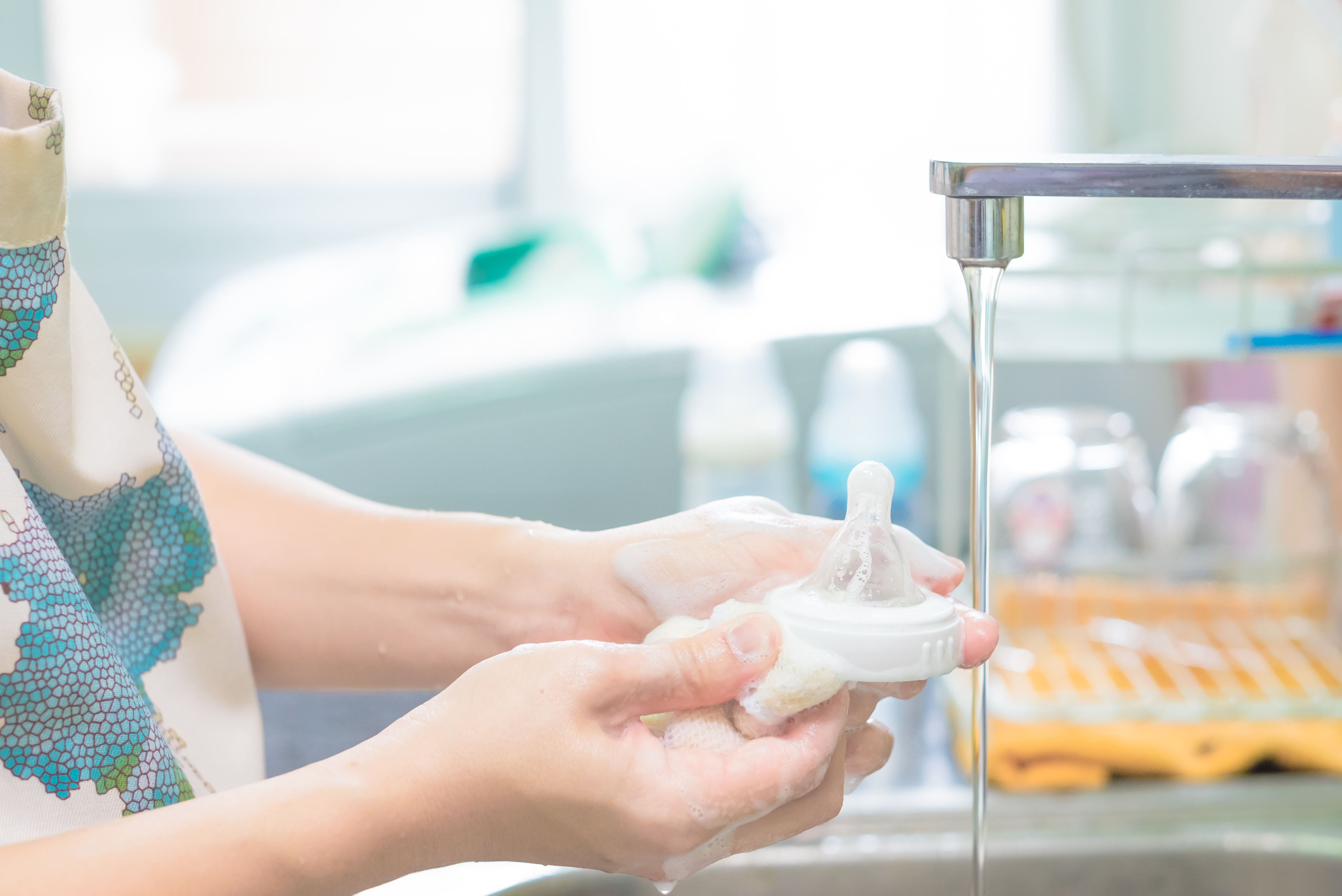How to Sterilise a Dummy or Baby Bottle
Whether you breastfeed or give your baby formula milk, good hygiene should always be paramount. Babies’ immune systems are still developing, which means they don’t have the same protection against germs and illnesses that adults do. If your baby is fed with a bottle or uses a dummy, knowing how to make sure bottles and dummies are hygienically clean is important for your baby’s health.
- When Do I Need to Use a Dummy Steriliser or Baby Bottle Steriliser?
- When Can You Stop Sterilising Baby Bottles and Dummies?
- How to Sterilise Baby Bottles and Dummies
- Boiling
- Chemical sterilisers
- Steam sterilisers
- Tips for Baby Bottle Hygiene
When Do I Need to Use a Dummy Steriliser or Baby Bottle Steriliser?
You’ll need to clean and sterilise all parts of your bottles after every time you’ve used them. If you’re expressing breastmilk to store for later, ensure the storage container is properly sterilised too – you don’t want your precious breastmilk being contaminated.
When Can You Stop Sterilising Baby Bottles and Dummies?
If you are wondering when to stop sterilising baby bottles and dummies, you should continue to sterilise all bottles, dummies and feeding equipment until your baby is 12 months old. Milk is a particularly good environment for some nasty germs to grow, so it remains important to continue to sterilise all through the first year.

How to Sterilise Baby Bottles and Dummies
To clean the bottles and dummies, you’ll need to:
- Wash your hands thoroughly, e.g., using Dettol Handwash
- Separate all the parts
- Check for any cracks or tears, and throw away any damaged parts. Cracks can provide a hiding place for germs
- Wash them in warm soapy water using a bottle brush to remove all the leftover milk. This is best done as soon as possible after a feed. Squirt water through the teat hole to clear any remaining milk
- Rinse well
Until your baby is 12 months old, you need to sterilise your bottles and dummies. There are a number of different ways you can do this. You could boil them, use a chemical steriliser, or use steam such as an electric bottle steriliser or a microwave steriliser. Washing baby bottles in the dishwasher is not a good idea, as most dishwashers don’t get hot enough to sterilise baby feeding equipment.
Boiling
- Cover all parts with tap water in a large pot with a lid, making sure there’s no air trapped inside the bottles
- Bring to the boil and boil for five minutes
- Allow water to cool and then air dry bottles
Chemical Sterilisers
- Follow the instructions to make up the chemical solution in a large, clean, plastic tub
- Make up a new solution every day
- Ensure each part of the bottle is completely covered by the chemical solution, making sure there’s no air bubbles inside
- Don’t put in anything metal
- Keep bottle parts in the solution until you’re ready to use them
- To use the bottle, just remove the parts and put together – no need to rinse
Steam Sterilisers
Steam sterilisers can vary in their methods – be sure to follow the manufacturers’ instructions for your particular steriliser.
Tips for Baby Bottle Hygiene
- Always wash your hands thoroughly. Dettol Hand Wash can be used before handling sterilised equipment, preparing feed, or giving the bottle to the baby.
- Sanitise your work surface with an appropriate cleanser such as Dettol Surface Cleanser >before putting your bottles back together or preparing any feed, to make sure your freshly sanitised bottles won’t be contaminated.
- Store dry sterilised equipment in a clean, covered container in the fridge.If using chemical sterilisation, you can just leave the equipment in the solution until you’re ready to use it.
- Use boiled fresh tap water and allow to cool for no more than 30 minutes before adding formula.
- Expressed breast milk can be stored in sterilised bottles in the fridge for up to 72 hours, after which it must be discarded. If you’re not going to use it in the next few days, freeze it immediately.
- Any leftover formula or breastmilk that a baby doesn’t finish in a feed needs to be thrown out.
Never clean a bottle teat or dummy by putting it in your own mouth – your mouth has lots of germs you could transfer to your baby.
First published:
Last updated:
